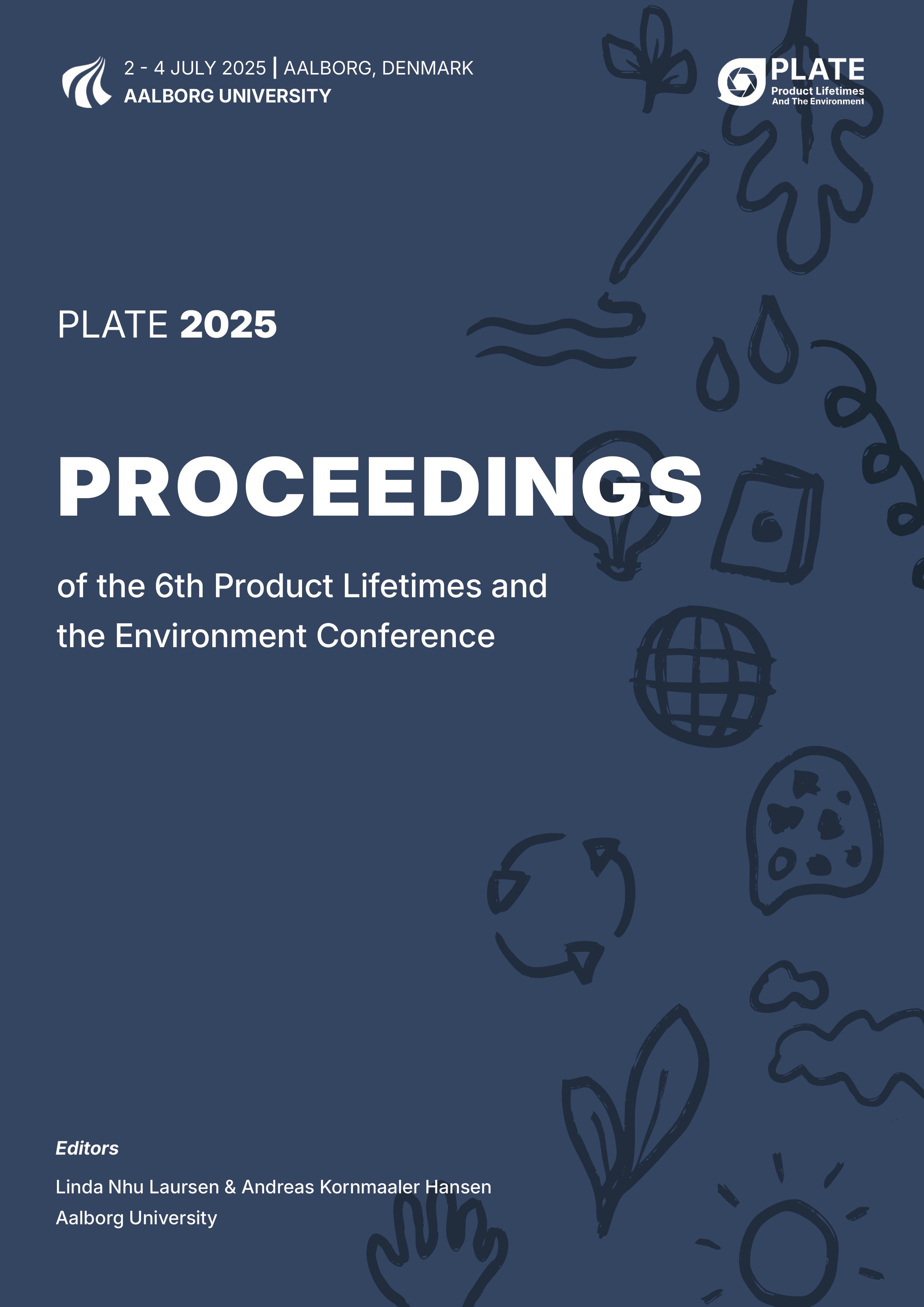Assessing socio-economic impacts of Lithium-Ion Battery recycling through Multi-Regional Input-Output Analysis
DOI:
https://doi.org/10.54337/plate2025-10339Keywords:
Lithium-ion batteries (LIB), Multi-Regional Input-Output analysis (MRIO), Recycling, End of Life (EoL), Socio-economic impactsAbstract
The expected rise in electromobility and the increasing use of lithium-ion batteries (LIBs) is generating new challenges and opportunities, particularly in the End-of-Life (EoL) management of batteries. One of these challenges are the socio-economic impacts associated with the EoL process steps on which this paper focuses on. With the method of Multi-Regional Input-Output (MRIO) analysis, a selected recycling process route in Europe is assessed regarding socio-economic impacts, first at current demand (baseline scenario) and followed by an upscaled demand. The results provide insight into differences in some socio-economic impact categories, such as employment, vulnerable employment, and worker remuneration. The scale-up scenarios show, among other things, an increase in the workforce and remuneration (positive impact). However, with an increase in vulnerable employment, negative socio-economic impacts are also evident in Europe-centered recycling processes. The results furthermore show that changing recycling processes can lead to sustainability trade-offs. Due to the limited number of indicators in the selected method, it is not possible to provide an overall picture of social impacts. However, this research shows a clear change in the individual impacts, which underlines the need for proactive measures to overcome infrastructure problems, expand recycling capacities, and improve employment conditions in all sectors.
References
Cecere, G, Hassan, R., Eltohamy, H. & Rigamonti, L. (2024). A socio-economic assessment of an emerging technology in the mining industry. The International Journal of Life Cycle Assessment, https://doi.org/10.1007/s11367-024-02392-w.
Cerioni, E., & Marasca, S. (2021). The methods of social impact assessment: The state of the art and limits of application. Calitatea, 22(183), 29–36.
Costa, C.M., Barbosa, J.C., Goncalves, R., Castro, H., Del Campo, F.J., LancerosMendez, S., Recycling and environmental issues of lithium-ion batteries: advances, challenges and opportunities, Energy Stor. Mater. 37 (2021) 433–465. https://doi.org/10.1016/j.ensm.2021.02.032
Fleischmann, J., Hanicke, M., Horetsky, E., Ibrahim, D., Jautelat, S., Linder, M., Schaufuss, P., Torscht, L., & van de Rijt, A. (2023). Battery 2030: Resilient, sustainable, and circular. McKinsey & Company, 2–18.
Koese, M., Blanco, C.F., Vert, V.B. & Vijver, M.G. (2023). A social life cycle assessment of vanadium redox flow and lithium-ion batteries for energy storage. Journal of Industrial Ecology, 27(1), pp. 223-237. DOI: 10.1111/jiec.13347
Maisel, F., Neef, C., Marscheider-Weidemann, F. & Nissen, N.F. (2023). A forecast on future raw material demand and recycling potential of lithium-ion batteries in electric vehicles. Resources, Conservation and Recycling, 192, 106920. https://doi.org/10.1016/j.resconrec.2023.106920
Meshram P, Mishra A, Abhilash Sahu R. Environmental impact of spent lithium ion batteries and green recycling perspectives by organic acids - a review. Chemosphere 2020;242:125291.
Miller, R.E. & Blair, P.D. (2009). Input-output analysis: Foundations and Extensions, Second ed., Cambridge Univ. Press, Cambridge. https://doi.org/10.1017/CBO9780511626982
Morrison-Saunders, A. & Pope, J. (2013). Conceptualising and managing trade-offs in sustainability assessment. Environmental Impact Assessment Review, 38, pp. 54-63. https://doi.org/10.1016/j.eiar.2012.06.003
Ramos, A. (2024). Sustainability assessment in waste management: An exploratory study of the social perspective in waste-to-energy cases. Journal of Cleaner Production, 475, 143693. https://doi.org/10.1016/j.jclepro.2024.143693
Rebolledo-Leiva, r., Moreira, M.T. & González-García, S. (2023). Progress of social assessment in the framework of bioeconomy under a life cycle perspective. Renewable and Sustainable Energy Reviews, 175, 113162. DOI: 10.1016/j.rser.2023.113162
Sanchez, M., Sanz, S., & Ventosa, P. (2021). Review of economic and socio-economic studies on recycling topics. ENT Environment and Management for the European Commission, DG JRC, under contract number B.B651793.
Stadler K, R. Wood, T. Bulavskaya, C.J. Sodersten, M. Simas, S. Schmidt, A. Usubiaga, J. Acosta-Fernandez, J. Kuenen, M. Bruckner, S. Giljum, S. Lutter, S. Merciai, J.H. Schmidt, M.C. Theurl, C. Plutzar, T. Kastner, M. Eisenmenger, K. Erb, A. de Koning, A. Tukker (2018) EXIOBASE 3: Developing a Time Series of Detailed Environmentally Extended Multi-Regional Input-Output Tables, Journal of Industrial Ecology 22(3)502-515. doi: 10.1111/jiec.12715
Usai, L. et al 2022 Environ. Res.: Infrastruct. Sustain. 2 011002. doi : https://doi.org/10.1088/2634-4505/ac49a0
Wiedmann, T., Wilting, H.C., Lenzen, M., Lutter, S. & Palm, V. (2011). Quo Vadis MRIO? Methodological, data and institutional requirements for multi-region input-output analysis, Ecological Economics, 70, pp. 1937-1945.
Yıldızbaşı, A., Öztürk, C., Yılmaz, İ. & Arıöz, Y. (2022). Key Challenges of Lithium-Ion Battery Recycling Process in Circular Economy Environment: Pythagorean Fuzzy AHP Approach. Lecture Notes in Networks and Systems, 308, pp. 561-568. DOI: 10.1007/978-3-030-85577-2_66
Zimek, M., Asada, R., Baumgartner, R.J., Brenner-Fliesser, M., Kaltenegger, I., & Hadler, M. (2022). Sustainability trade-offs in the steel industry – A MRIO-based social impact assessment of bio-economy innovations in a belgian steel mill. Cleaner Production Letters, 3, 100011. https://doi.org/10.1016/j.clpl.2022.100011




